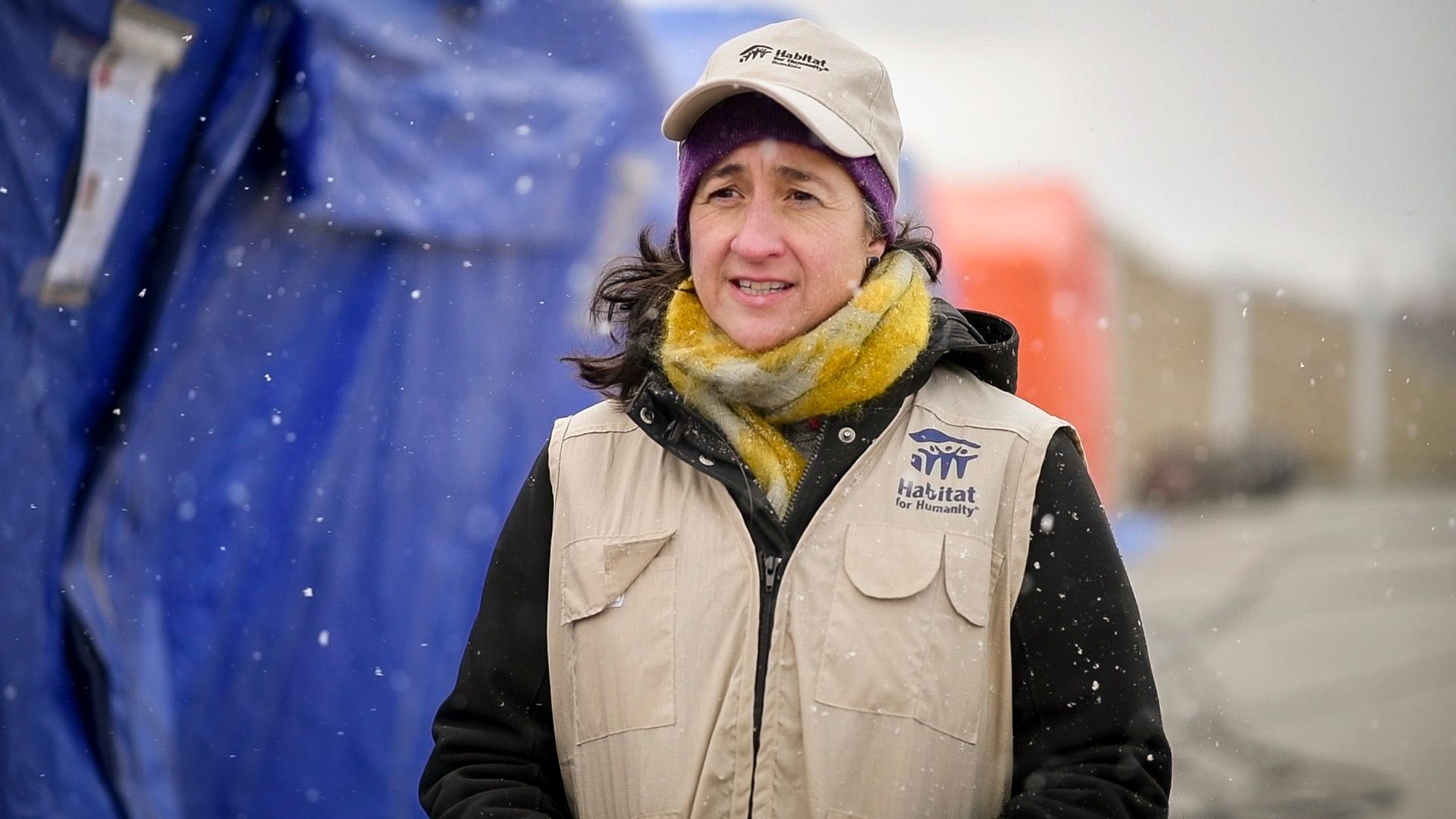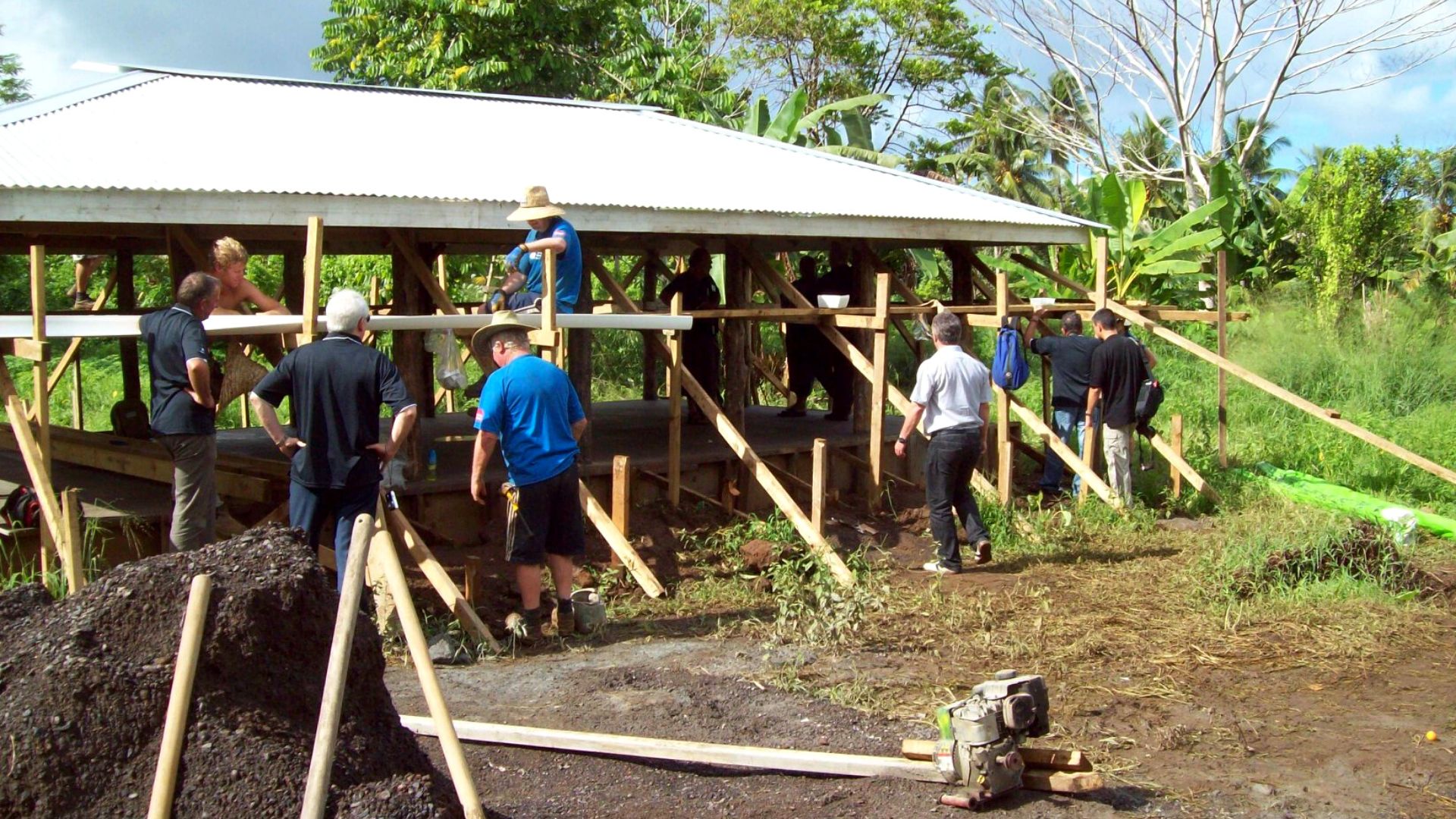This is Ganga.
After the earthquake, Ganga and his family were left with a pile of rubble where their house once stood. They lived in a tent for five months in dire conditions. As an experienced mason in Tupche, Ganga set about rebuilding his house. After speaking with a fellow community member, he found out that the house he was building did not meet the new national building standards.
Determined to build a strong and stable home, Ganga went to Habitat’s Housing Support Service Center for some support and guidance. While there, he enrolled in a training tailored towards qualified masons. Ganga is grateful for the help of Habitat and his new skills and knowledge. With this support he has rebuilt a strong, safe house for himself and his family that met the government standards.
“The training not only boosted my confidence but it also honed my skills in building disaster-resilient houses that I now use to help my community.”
When we rebuild after disasters, we must build back safer. However, rebuilding strong homes isn’t enough. It’s also about giving families and communities vital skills and knowledge, so that they can recover faster should a disaster strike.
In Nepal most homeowners build their own homes, however, many either lack formal training. Even if they are qualified, people often are not aware of government building standards. Having the right skills and right knowledge is important in building a strong place to live and a stable future.
Through Habitat, we work with Nepalese families to understand and meet the new strengthened building standards.
We’re supporting people with training for both experienced masons and amateur builders. Through a month long course, participants improve their masonry skills with safe building techniques. With this new knowledge they can not only rebuild their homes, but also help with reconstruction within their communities. And this industry is already short of workers. Habitat for Humanity has trained 198 people already, including a number of women.
For an additional 390 hours, trainees can continue to earn a certification, increasing their income and stabilising their future.


